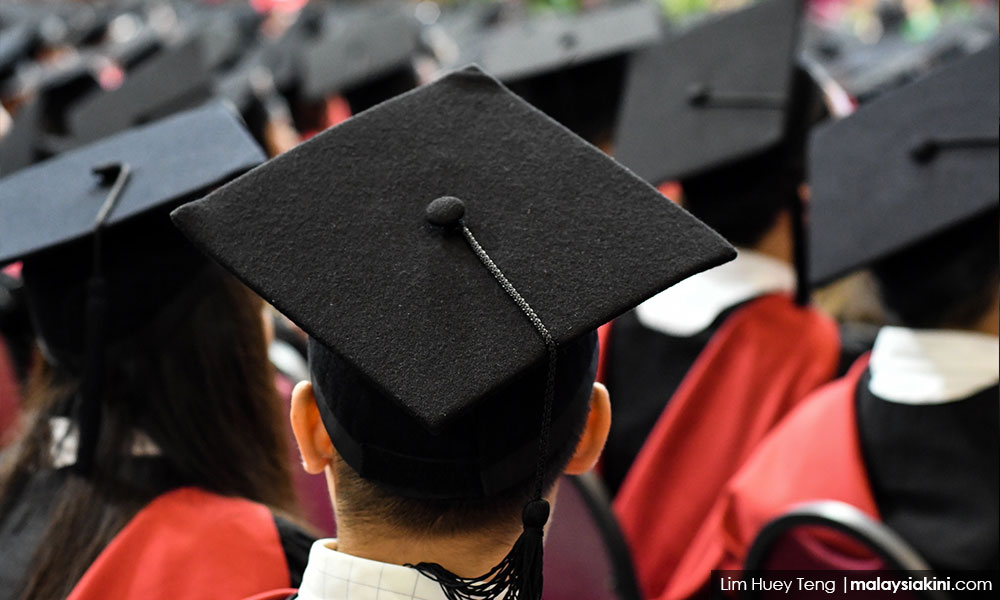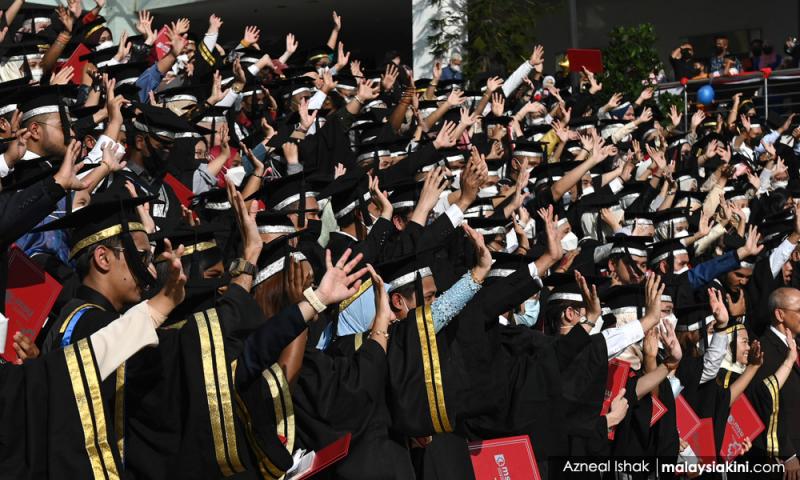LETTER | Address student debt, build more public unis
LETTER | Tertiary education is back in the spotlight.
From Prime Minister Anwar Ibrahim’s remarks on the wealthy enjoying subsidies in education to Utar’s RM83 million tax exemption, as well as Housing and Local Government Minister Nga Kor Ming’s comments on PTPTN loan repayments - it is increasingly clear that the dream of a quality, free, and inclusive education system is fading under the Pakatan Harapan and Madani government.
This serves as a valuable lesson for the public. People should stop trusting any promises or manifestos from mainstream political organisations and distance themselves from mainstream political aspirations.
The public has grown more discerning and is beginning to engage with political organisations that have ideologies extending beyond sweet promises.
Parti Sosialis Malaysia’s perspective on tertiary education issues:
Admission systems and quota
The quota and meritocracy systems for matriculation and subsequent entry into public universities (IPTA) have created an uncomfortable situation in our country.
Furthermore, there is no guarantee that an applicant will get the course they desire for their tertiary education.
The reason given is that there are limited spots, but applications exceed expectations.
Tertiary education in the hands of capitalists and private sector
The above situation has driven the government to open doors for the private sector to establish higher education institutions by enacting the Private Higher Educational Institutions Act 1996 and establishing PTPTN.
Consequently, various colleges, universities, and foundations have emerged to provide educational services.

Political parties like MIC and MCA have also seized the opportunity to establish educational institutions such as Utar and Aimst to maintain their political hegemony.
Do we even remember the number of public universities?
Today’s situation forces the public to accept that new public universities are not in the cards. It’s nowhere on the agenda for BN, Perikatan Nasional, or Harapan.
Due to the lack of spaces in public universities, people are compelled to scramble for spots in private universities, all of which promise quality outcomes.
In the process, we’ve forgotten to ask ourselves when was the last time a public university was built for the people?
Debt
Young people leaving Private Higher Educational Institutions (IPTS) are burdened with high levels of debt.
While some IPTS may offer courses below market rates, today there isn’t a significant difference in costs among IPTS.
Repayment rates are also burdensome, especially given that starting salaries for graduates remain low, and job opportunities that match their skills are limited compared to the number of graduates.
So, what’s the socialist solution?
Free education
Education is a fundamental human right. It enhances an individual’s capacity to contribute meaningfully to society and improves their socio-economic condition.
Human rights should not be commodified.
Free education would enable young people to spend more on themselves and their families. This is especially important as young people face numerous economic constraints and rising cost of living.
In such circumstances, it’s highly irresponsible for the government to take RM100–RM200 from their pockets to repay PTPTN.
In the United States, discourse on student debt cancellation entered the mainstream after Bernie Sanders ran a fact-driven campaign on the issue.
Meanwhile, we’re still stuck in the “Pay Your Debt” narrative with no progress.
Free education will only succeed when:
Expansion of public infrastructure and institutions
More universities, colleges, and institutions need to be built. As a first step, the government should be prepared to take over troubled institutions.
This would increase the number of government institutions as well as the availability of specific courses desired by the public.
An initiative to expand public educational institutions, starting with the steps above, can address the root cause of IPTA admission issues, namely limited available spots.
These new spots can serve as the foundation for free offerings, but this can only happen when educational infrastructure is under government control.
Acquisitions and new infrastructure development are essential for achieving free education.
The public also needs to be more aware of private tertiary education institutions being used by political parties to maintain their influence.
Some institutions only exist due to issues of limited desirable offerings, which are also affected by the quota system.
These institutions are used as a lifeline for ordinary citizens who want their children to study preferred courses, but in reality, the root problem is created by the same parties in power.
If we want to eliminate the root problem, we must be brave enough to take nationalisation steps like the ones mentioned above.
The views expressed here are those of the author/contributor and do not necessarily represent the views of Malaysiakini.
RM12.50 / month
- Unlimited access to award-winning journalism
- Comment and share your opinions on all our articles
- Gift interesting stories to your friends
- Tax deductable
